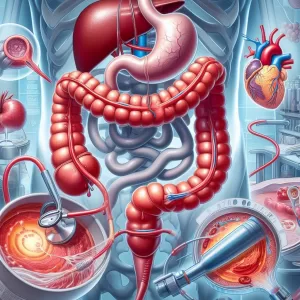Qu'est-ce que l'intoxication alcoolique ?
[wp_show_posts id=”10194″]
**Question: What is Alcohol Intoxication?**
**Answer:**
Alcohol intoxication, also known as alcohol poisoning, is a serious condition that occurs when excessive consumption of alcohol overloads the body’s ability to metabolize it. This results in dangerously high levels of alcohol in the bloodstream, leading to a wide range of symptoms and potentially life-threatening complications.
**Symptoms of Alcohol Intoxication:**
* Slurred speech
* Impaired coordination
* Nausea and vomiting
* Confusion and disorientation
* Profound drowsiness or loss of consciousness
* Seizures
* Irregular or slowed breathing
* Hypothermia (low body temperature)
* Alcohol withdrawal symptoms when the intoxicating effects wear off
**Causes of Alcohol Intoxication:**
* Consuming excessive amounts of alcohol
* Drinking alcohol on an empty stomach
* Mixing alcohol with other drugs or medications
* Underlying health conditions that impair alcohol metabolism
**Risk Factors for Alcohol Intoxication:**
* Age (younger adults are more susceptible)
* Gender (women are generally more affected than men)
* Family history of alcoholism
* Mental health conditions
* Certain medications
* Dehydration
**Consequences of Alcohol Intoxication:**
* Short-term: Memory loss, blackouts, injury, violence, alcohol poisoning
* Long-term: Liver cirrhosis, heart disease, cancer, neurological damage
**Treatment for Alcohol Intoxication:**
* **Emergency Medical Care:** Immediate medical attention is crucial if any of the severe symptoms of alcohol intoxication are present.
* **Observation and Monitoring:** Monitoring vital signs, blood alcohol levels, and symptoms is essential.
* **IV Fluids:** Intravenous fluids are administered to correct dehydration and electrolyte imbalances.
* **Naloxone:** In cases where opioids are suspected of contributing to the intoxication, naloxone may be given to reverse their effects.
* **Benzodiazepines:** In extreme cases, benzodiazepines may be used to reduce seizures and calm the nervous system.
* **Long-Term Care:** Treatment for alcohol abuse and dependence may be recommended after recovery from intoxication.
**Prevention of Alcohol Intoxication:**
* Drink alcohol in moderation
* Avoid binge drinking
* Eat a meal before consuming alcohol
* Do not mix alcohol with drugs or medications
* Stay hydrated
* Be aware of your personal limits
* Consider designated drivers or alternative transportation if necessary
By being informed about the dangers of alcohol intoxication and taking steps to prevent it, individuals can protect themselves from this potentially life-threatening condition.
**Question: What is Alcohol Intoxication?**
**Answer:**
Alcohol intoxication, also known as alcohol poisoning, is a serious condition that occurs when excessive consumption of alcohol overloads the body’s ability to metabolize it. This results in dangerously high levels of alcohol in the bloodstream, leading to a wide range of symptoms and potentially life-threatening complications.
**Symptoms of Alcohol Intoxication:**
* Slurred speech
* Impaired coordination
* Nausea and vomiting
* Confusion and disorientation
* Profound drowsiness or loss of consciousness
* Seizures
* Irregular or slowed breathing
* Hypothermia (low body temperature)
* Alcohol withdrawal symptoms when the intoxicating effects wear off
**Causes of Alcohol Intoxication:**
* Consuming excessive amounts of alcohol
* Drinking alcohol on an empty stomach
* Mixing alcohol with other drugs or medications
* Underlying health conditions that impair alcohol metabolism
**Risk Factors for Alcohol Intoxication:**
* Age (younger adults are more susceptible)
* Gender (women are generally more affected than men)
* Family history of alcoholism
* Mental health conditions
* Certain medications
* Dehydration
**Consequences of Alcohol Intoxication:**
* Short-term: Memory loss, blackouts, injury, violence, alcohol poisoning
* Long-term: Liver cirrhosis, heart disease, cancer, neurological damage
**Treatment for Alcohol Intoxication:**
* **Emergency Medical Care:** Immediate medical attention is crucial if any of the severe symptoms of alcohol intoxication are present.
* **Observation and Monitoring:** Monitoring vital signs, blood alcohol levels, and symptoms is essential.
* **IV Fluids:** Intravenous fluids are administered to correct dehydration and electrolyte imbalances.
* **Naloxone:** In cases where opioids are suspected of contributing to the intoxication, naloxone may be given to reverse their effects.
* **Benzodiazepines:** In extreme cases, benzodiazepines may be used to reduce seizures and calm the nervous system.
* **Long-Term Care:** Treatment for alcohol abuse and dependence may be recommended after recovery from intoxication.
**Prevention of Alcohol Intoxication:**
* Drink alcohol in moderation
* Avoid binge drinking
* Eat a meal before consuming alcohol
* Do not mix alcohol with drugs or medications
* Stay hydrated
* Be aware of your personal limits
* Consider designated drivers or alternative transportation if necessary
By being informed about the dangers of alcohol intoxication and taking steps to prevent it, individuals can protect themselves from this potentially life-threatening condition.
2 commentaires
Laisser un commentaire
Articles populaires







Alcohol intoxication is a state of being under the influence of alcohol, typically characterized by impaired judgment, slurred speech, and lack of coordination. It can range from mild to severe, depending on the amount of alcohol consumed and the individual’s tolerance.
**Alcohol intoxication**